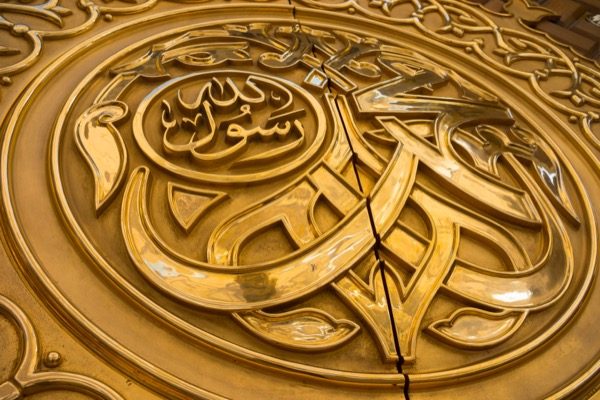
The Holy Qur’an is the pure, last and comprehensive discourse which was revealed to the noble heart of the Holy Prophet Muhammad (sa) for the guidance of mankind till the end of the world. The eloquent and fluent Arabic text is so deep in meaning, so full of reasons and arguments and so wide in its scope that no other revelation can equal it. No one is capable of producing a match for even the smallest verse. This challenge of producing a single verse equal to those found in the Qur’an still stands unaccepted. It is a testimony to its greatness and supremacy.
This is the discourse, which, when heard by the famous master of Arabic language, the poet Labid, listened to it, he was so captivated by its eloquence that he stopped composing poetry. Once he was asked to recite his recently composed verses: he remarked that since he had heard this verse of the Holy Qur’an:
الٓمٓ * ذٰلِکَ الۡکِتٰبُ لَا رَیۡبَ ۚۖۛ فِیۡہِ
[1]
[‘This is a perfect book; there is no doubt in it; it is a guidance for the righteous’]
he had stopped writing poetry.
Hazrat Umar’s (ra) acceptance of Islam was miraculous and a proof of the greatness of the Holy Qur’an. This was the time, when he left his house to kill the Holy Prophet Muhammad (sa). On the way he heard the recitation of first few verses of chapter 20, Surah Ta Ha in his sister’s house. He spontaneously exclaimed, ‘How beautiful and elegant this discourse is!’ After that he accepted Islam.
The well-known chief of Quraish Utbah came to advise the Holy Prophet Muhammad (sa) on behalf of Quraish. The Holy Prophet Muhammad (sa) recited the first few verses of chapter 41, Surah Ha Mim. When the Holy Prophet (sa) recited the verses which included a sajdah [prostration], he spontaneously fell in prostration with the Holy Prophet (sa) and said, ‘By God! This is not poetry, nor are those the words of a soothsayer or magic. I swear by the name of God that I have listened to such discourse from Muhammad (sa) today, the like of which I have never heard before.’
Muhammad (sa) – The Perfect Man (Qadian, India: Nazarat Isha’at, 2015), 124-125.
ENDNOTES
[1] The Holy Qur’an, 2:2-3.




Add Comment